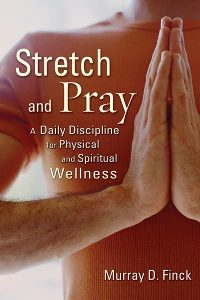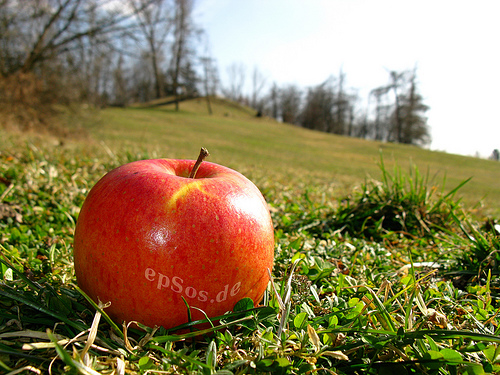(Note: This is part six in a series of what to do when you have more time than money.)
When a person is presented an opportunity where there is some room to breathe and time to relax, he or she may arrive with a broken body riddled with stress. Unfortunately, it may take doctor’s orders or even a heart attack to slow a person down. After all, our culture doesn’t reward moderation when it comes to careers and achievement.
Not surprisingly, as a whole the American people are not healthy folk. According to the Centers for Disease Control and Prevention, 67% of non-institutionalized adults 20 years and older are overweight. For the same group, 34% are considered obese. For children the numbers are equally disturbing: 18% of children ages 11-19, 15% of children 6-11, and 11% of children ages 2-5 are classified as overweight. With excessive weight comes the potential for additional health problems including diabetes, high blood pressure, high cholesterol, heart disease, depression, joint problems, and more. For children obesity has an especially dangerous consequence. Results of a recent study conducted by Center for Human Growth and Development at the University of Michigan show that being overweight increased a child’s potential for being bullied by 63%.
The effects of ill health are intricately related to how our bodies handle stress, and how we handle stress is about as original as each person’s fingerprints. According to the American Institute of Stress, between 70 -90% of visits to primary care physicians are linked to stress-related complaints. Sources of stress range from environmental to job-related to loss of loved ones. Not all stress is bad, a little stress can even be good, but too much or prolonged stress may be deadly.
Our bodies are amazing creations, and they do have the power to heal if we treat them properly. Part of the problem with our busy lifestyles and hectic schedules is that we often treat our bodies with a lack of respect–shoveling in highly-processed, high-fat fast food on the run, cutting corners on sleep, avoiding exercise, and self-medicating through an over-indulgence in caffeine, nicotine, and alcohol. Eventually, one will pay the price for poor treatment of the marvelous creation that is the human body, and that price can be a steep one indeed.
Rather than continuing to paint a picture of doom and gloom, I encourage you to take advantage of the time with which you have been gifted to help yourself to good health. Whether that extra time is the result of a job loss, transfer, health issue, or personal choice, now is the time to develop some healthy habits.
First of all, consider a visit to your primary care practitioner to evaluate the state of your physical health and well-being and make sure that you are ready to embark upon a new plan for eating, exercise, and healthy living. Once you have the all clear, here are some tips to get you headed in the right direction.
- Make a pledge to improve your diet. Choose fresh, whole, and organic foods when possible. Cruise the
![3290548320_390200edd3_m[1]](https://www.stewardshipoflife.org/wp-content/uploads/2010/05/3290548320_390200edd3_m1.jpg) perimeter of your grocery store. Most of the processed, unhealthy options are found on the interior aisles at eye level or on attractive end-cap displays. Go for fresh vegetables, fruits, legumes, nuts, and whole grains. Include dairy products and meat sparingly. Avoid processed meats like sausages, hot dogs, and lunch meats. Use olive oil and blend in salads and cruciferous vegetables. You should be eating at least five servings of fruits and vegetables daily. Eat a good breakfast and a lighter supper. You probably already know these things, but a reminder never hurts. Remember your mother’s mantra “Everything in moderation,” and you’ll begin to see improvement. Oh, be sure to check out Michael Pollan’s book In Defense of Food: An Eater’s Manifesto. Click here for a National Public Radio interview and excerpt from the book.
perimeter of your grocery store. Most of the processed, unhealthy options are found on the interior aisles at eye level or on attractive end-cap displays. Go for fresh vegetables, fruits, legumes, nuts, and whole grains. Include dairy products and meat sparingly. Avoid processed meats like sausages, hot dogs, and lunch meats. Use olive oil and blend in salads and cruciferous vegetables. You should be eating at least five servings of fruits and vegetables daily. Eat a good breakfast and a lighter supper. You probably already know these things, but a reminder never hurts. Remember your mother’s mantra “Everything in moderation,” and you’ll begin to see improvement. Oh, be sure to check out Michael Pollan’s book In Defense of Food: An Eater’s Manifesto. Click here for a National Public Radio interview and excerpt from the book.
- Get adequate rest. For most adults seven hours of sleep each night is the optimum amount. Work in a few power naps throughout the week if you can, especially if your body is stressed out and run down.
- Exercise is mandatory. This doesn’t mean that you have to join a gym. Just make sure you have a good
 pair of shoes and start walking. Try some yoga or Pilates for stretching and stress reduction. I like ELCA Bishop Murray D. Finck’s Stretch and Pray routine. Do some strength and core training, too, using resistance bands, free weights, exercise balls, or crunches, squats, and push-ups. Just make sure not to overdo the exercise in the beginning. Your high school coach’s clarion cry of “No pain; no gain” is not appropriate at this stage of the game.
pair of shoes and start walking. Try some yoga or Pilates for stretching and stress reduction. I like ELCA Bishop Murray D. Finck’s Stretch and Pray routine. Do some strength and core training, too, using resistance bands, free weights, exercise balls, or crunches, squats, and push-ups. Just make sure not to overdo the exercise in the beginning. Your high school coach’s clarion cry of “No pain; no gain” is not appropriate at this stage of the game.
- Take some time for self care by reading, meditating, praying, or practicing music. Disconnect from the television, iPod, laptop, and turn off your cell phone on a regular basis. We need quiet because our lives are filled with noise. Treat yourself to a massage if you have resources to do so.
- Stay connected with friends, your faith community, and family. Engage in some volunteer opportunities. Giving back is a healthy habit to form.
- Drink at least eight 8-ounce glasses of water a day to stay sufficiently hydrated. Ditch the sodas to save money and your health. Drink green tea (or black tea) daily to access important antioxidents. Like coffee, beer, or wine? Remember to use these beverages in moderation.
These are just a few familiar tips to help you refocus and prioritize your health goals. It is within your power and control to take positive steps toward good health. You have one body and one life, so make the most of both and take good care of yourself. It’s good stewardship–plain and simple.
For more information about helping yourself to good health, visit these websites.
Wellness.com offers a variety of resources pertaining to diet, exercise, emotional, and physical health.
The Examiner offers a list of links to various health-related websites (including Mayo Clinic and Harvard).
The Red Fall Lakes School District in Minnesota also offers an easily accessible table of links.



![3345896050_8e2d8cbe51_m[1]](https://www.stewardshipoflife.org/wp-content/uploads/2010/05/3345896050_8e2d8cbe51_m1.jpg)
![286131360_9326d8deca_m[1]](https://www.stewardshipoflife.org/wp-content/uploads/2010/05/286131360_9326d8deca_m1.jpg)

GREAT advice, Sharron! The tips are good even for us sleep-deprived souls who have little spare time at all. I’ve found exercise essential to maintaining equilibrium amid stress.